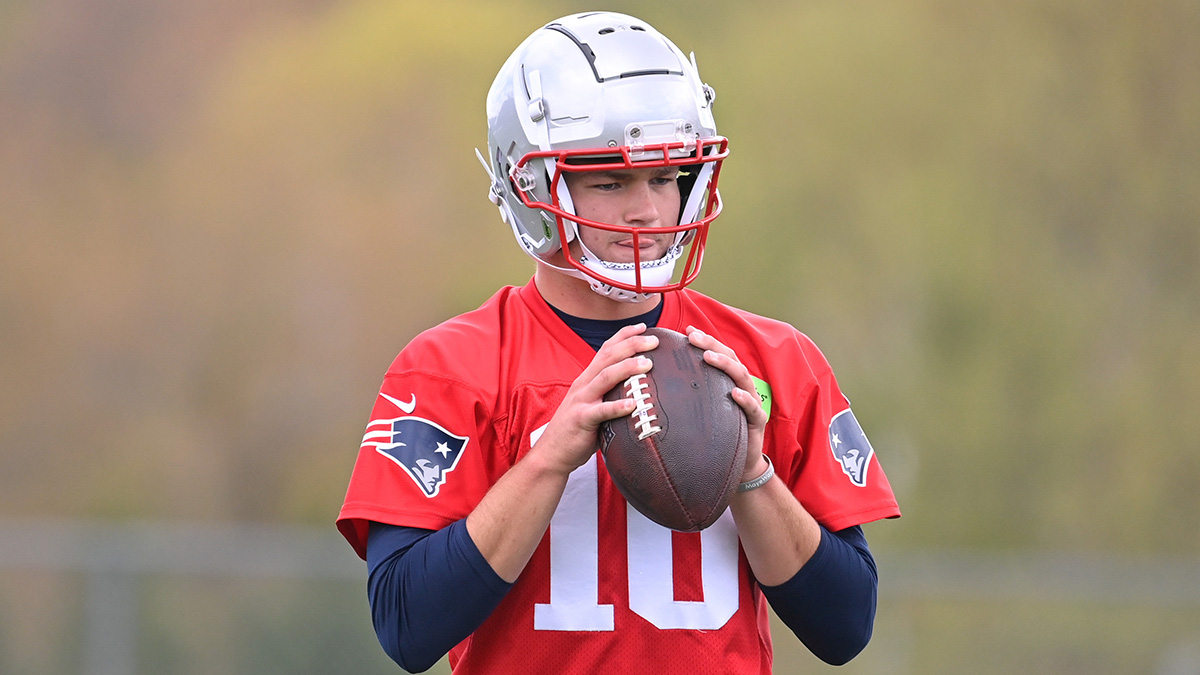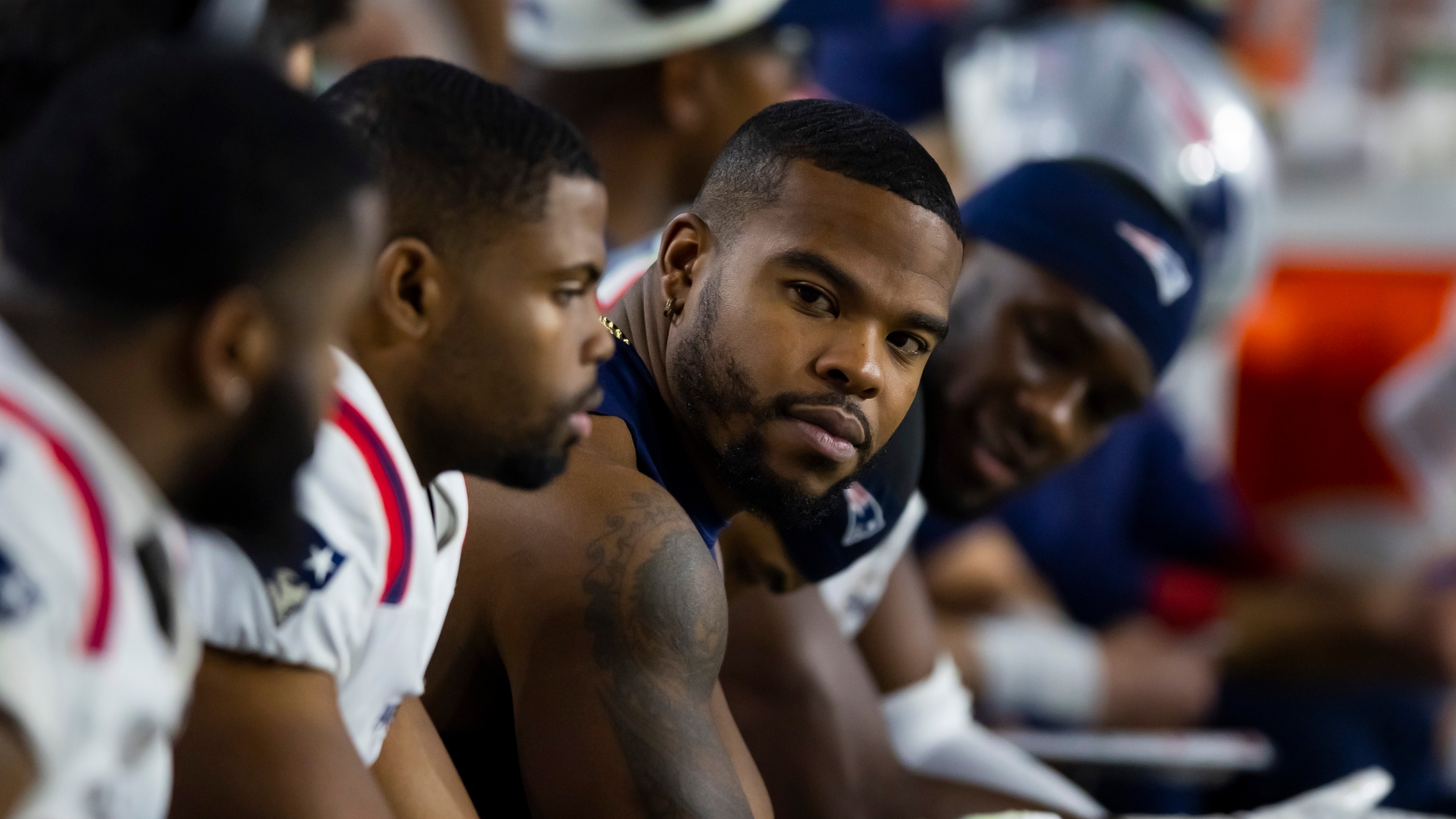Here we are again at the edge of the volcano. A Patriots player we thought irreplaceable is nearing replacement.
Why are we here? The usual. Age, money, future performance projections, a combination of all three. A legend is poised to be nudged over the edge. After that? Bill Belichick will return to business.
If history is our guide, the loss won’t stop the onward march of the Patriots dynasty. We won't know for a few years if the possible departure of Tom Brady will yield a different result. But there’s no room for sacred cows in Belichick’s empire. Not even sacred GOATs.
Belichick has had the mettle to move on from a long list of players — from very good to legendary — and stoically taken the ensuing hits. Every instance — we've already looked at some of them — is rich in backstory. What happened? Why did it happen?
As Brady approaches free agency, these stories are a reminder we've been here before. Many times. It's just business.
The September 2003 release of Lawyer Milloy was probably the most controversial decision Bill Belichick’s made in New England. But the way it ultimately worked out made the move an iron-clad precedent for anyone out there — fans, media, players and the rest of the NFL included — inclined to think they knew better than Belichick what was best for the New England Patriots.
Milloy was a heart-and-soul safety for the Patriots and a key leader for the 2001 team that won Super Bowl 36. But even though he made the Pro Bowl in 2002, Milloy’s play seemed to be slipping according to Michael Holley’s book Patriot Reign excerpted in the Boston Globe.
New England Patriots
As much as (Belichick) liked Milloy personally … he didn't like the way the numbers sat on the salary cap. He wasn't thrilled with the '02 production, either, but he could accept it if it were next to a cap number different from $4.5 million. Belichick had thought about it the entire offseason. Once, during a draft meeting, scout Tom Dimitroff made a comment about the big plays he'd seen Milloy make in '02. "I'd like you to come up with some examples," the coach said. "I can't think of any."
Belichick thought about it in March when the Patriots signed former Chargers safety Rodney Harrison, and he continued to think about it in April when safety Tebucky Jones was dealt to the Saints. He wanted the team to negotiate with Milloy's agent, Carl Poston. If they could work out a deal that would give Milloy around $3 million per season, that would be OK.
It was not going to be all right with Milloy. It was a pay cut and he wasn't interested. On August 19th, when the Patriots traded a fourth-round pick to the Bears for nose tackle Ted Washington, it was still an issue. There was almost no chance of the disagreement ending well. New England was halfway through its preseason and three days away from exhibition game number three. Most of Milloy's teammates knew about his contract struggles — he wasn't known for his restraint. They all figured that this season would be his last in New England. They were right: Two weeks later, Tuesday, September 2nd, per his and his agent Poston's request, he was released. The Patriots had been preparing to do it if a deal couldn't be struck, so they weren't blindsided. Still, now they'd have to explain the loss to the team.
In a statement following the release, Belichick said, "This is a player and person I have immense respect for, and he meant a lot to this team and organization. Unfortunately he's a casualty of the system. The timing is not good. We tried to find a way to make it work. In the end, we weren't able to get to that point."
Milloy signed with the Bills and — five days after being released by the Patriots — was a force in Buffalo’s 31-0 win.
Listen and subscribe to Tom E. Curran's Patriots Talk Podcast:
ESPN’s Tom Jackson stated plainly the following Sunday morning before the Patriots played at Philadelphia that the Patriots “hate their coach.”
The Patriots went on to win that game, 31-10. After a loss at Washington two weeks later, the Patriots reeled off an NFL record 21 consecutive wins (one of them a 31-0 trouncing of Buffalo in the 2003 regular-season finale) and won Super Bowls 38 and 39.
Milloy’s release was a watershed moment for Belichick and his team. It served as an attention-grabber and a cautionary tale.
As Holley wrote:
What a lot of people would miss later in analyzing the release was that it wasn't all about the departure of Milloy for the players. It wasn't about trite perception, that they were somehow losing heart and soul. They had too much breadth for one player to represent heart and soul. They'd get over the loss. The thing that was so disturbing about the move is that it swung so close to all of them: If Milloy could be cut, following the trade of Drew Bledsoe the year before, who among them couldn't be released?
The answer? Nobody.


